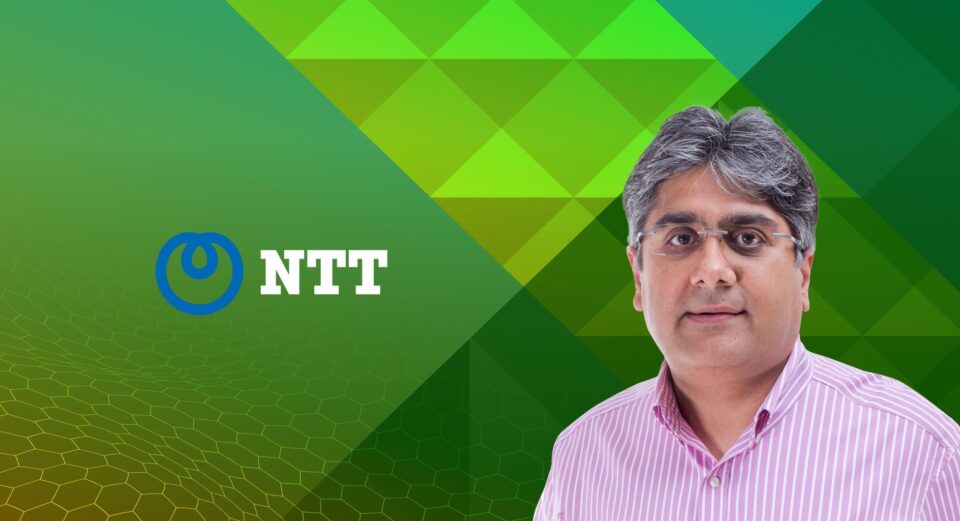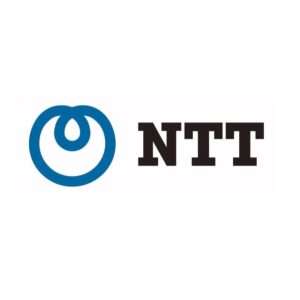“Digital Transformation Is Extremely Important For the Business Operations and It Teams to Be Aligned With Their Strategic Direction and Prioritization of Initiatives”
Hi Sanjay, please tell us about your role and the team/technology you handle at NTT?
As principal consultants at NTT Ltd., we provide advisory services to enterprise clients across a variety of industries. We help clients with their IT transformation agendas by providing expertise in areas including Cloud, Networking and infrastructure services, Customer & Employee Experience, and Visibility & Observability (to name a few). I lead the practice for IT Service Management which is focused on assisting our clients to deliver efficient, effective and quality IT services to their internal and/or external customers.
What is the most exciting part about working in the IT Services Management industry? What do you like the most about the technologies used to create and deliver best CX in IT?
Working closely as partners to our clients to enable their IT organizations to effectively serve their businesses gives purpose to the work we do. The technologies and solutions we enable for our clients touch many industries and facets of our lives. In essence, we are enabling and using technology for good.
Although there is a technology geek hidden within me, I believe that the main purpose technology serves is to deliver a specific business outcome. So if the technology chosen by our clients (or suggested by us) meets the client’s needs, then that technology is classified as “cool” in my books.
Read More: AiThority Interview with Steve Daheb, Chief Marketing Officer at ON24
How do you compare IT Ops trends in pre-covid days with what’s happening now?
Pre-CoVid, organizations went about their business of running and transforming their businesses at a pace that was either determined by internal demands or market forces – usually constrained by the availability of resources and the organization’s ability to absorb and deal with change.
However, CoVid threw a curveball at many businesses and by extension their IT operations. To survive and continue operating, businesses had to pivot their operating models overnight. Brick and mortar stores had to pivot to on-line, contact center agents were sent home to work, health professionals consulted using video and chat, teachers delivered lessons using collaboration tools and office-based employees had to quickly learn to collaborate and communicate using tools such as Teams, WebEx or Zoom. These radical, overnight changes placed tremendous pressure on IT Operations teams to maintain service levels in a technology landscape more complex than before.
Which industries have been leading versus lagging in IT Modernization and Security platform adoption?
I don’t think it’s as easy to pinpoint a particular vertical that is leading or lagging in their digital transformation program. Instead, there are characteristics that serve as indicators of how an organization may be progressing with their transformation agendas.
As you know, the radical changes that organizations have been dealing with have placed pressures on (a) resource availability: where organizations have had to do more with the same (and in some cases) or fewer resources (b) skills availability: organizations have had to deploy and adopt new technologies often requiring skills and capabilities they do not have internally.
As a result of these constraints, IT organizations have had to look at working with partners to supplement the people resources they required to just “get the job done” and bring the knowledge and skills required to deploy new technologies.
The organizations that have coped best with these challenges and seen success with their modernization agendas are the ones that have been able to lean on partners that they have had an existing trusted relationship. These organizations have been able to meet their transformation agendas at speed.
Read More: ITechnology Interview with Zinette Ezra, Chief Product Officer at Panaya
Hear it from the pro: Who / which team owns the success and failure of digital transformation operations?
Successful digital transformation is the responsibility of all parties within the organization. It is extremely important for the business operations and IT teams to be aligned with their strategic direction and prioritization of initiatives. This requires that business operations and IT need to plan together, build together and execute together. The alignment, synchronization and the ultimate success (or failure) of the digital transformation of an organization lie in the hands of all stakeholders.
How does NTT help customers plan digital transformation journeys? How long does it take to complete the whole process?
NTT takes a holistic approach to assisting clients with their transformation agendas. We take a consulting-led approach when working with a client which sees us first work with our clients to define a common organizational vision and strategy for their digital transformation program. This then progresses through various stages including discovery, technology deployment and adoption and service delivery and support. Our approach is to walk the journey with the client from start to finish as our success is defined by the success of our clients.
It is not easy to say that the process will take an “x amount of time”, as each client begins the journey at a different starting point and usually has a very unique destination they wish to reach. So, in essence, mileage varies from client to client.
Your prediction on the “future of digital transformation strategies” – how are you planning for the future at NTT?
The pace at which organizations find they need to transform is expected to continue to increase. This is going to require businesses to continue to innovate, improve their data analytics capabilities and embrace new technologies such as AI, Machine Learning and IoT (to name a few) – whilst ensuring the security of the environment. These changes are going to necessitate working with a trusted technology partner such as NTT to gain access to the right skills, expertise and experiences required to be successful.
Any advice to every CIO / CISO in 2021:
The best advice I can offer CIOs in 2021 is to be prepared for change by building resiliency and taking bold and brave steps to scale their businesses by leveraging technology. This is going to require closer alignment of strategies and priorities with the businesses you serve. The challenge faced by CIOs is to remain relevant to the businesses they serve by meeting current needs but looking to also deliver on the future needs of the business…at speed.
Thank you, Sanjay! That was fun and we hope to see you back on itechnologyseries.com soon.
[To participate in our interview series, please write to us at sghosh@martechseries.com]
Sanjay Lakhani is a Principle Consultant at NTT Ltd. where he leads the IT Service Management practice for the Americas region. He is focused on advising clients with their digital transformation agendas through the delivery of optimized, robust and cost effective IT services that are aligned to business objectives and priorities. Sanjay has more than 20 years of experience in IT Management.
NTT Ltd. is a leading, global technology services company. We’re here to enable the connected future. We come together to make the world a better place, and every day we use the power of technology to make it happen. We employ curious people who are ready to change the world. Through the work we do with our clients and in our communities, we find ways that technology can make a positive impact. We call it technology for good. That’s our focus and it extends well beyond the bottom line. We believe in using technology for good. This means helping organizations and society transform and move into the future with a partner they can trust. At the heart of our business are relationships built on loyalty, commitment and a shared belief in what’s possible when we work together: a better world for us all to live in. Working with organizations around the world, we achieve business outcomes through intelligent technology solutions.



